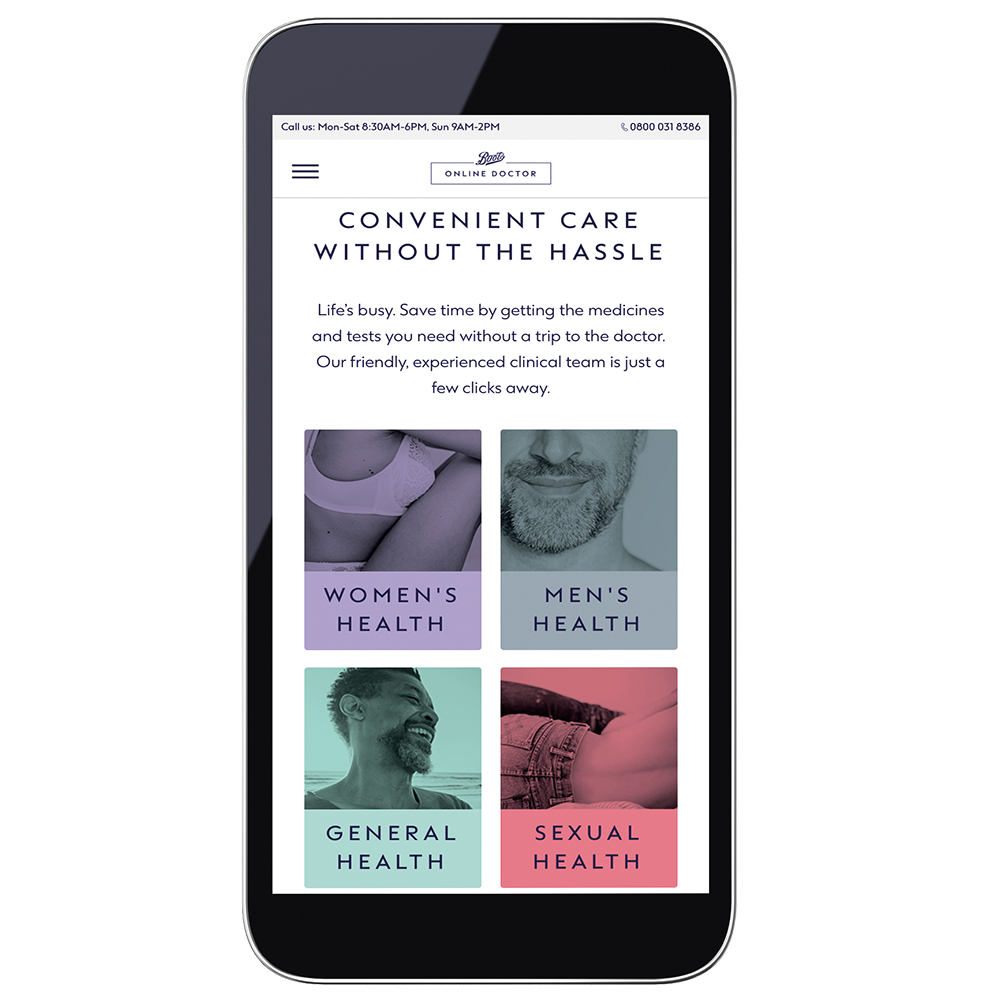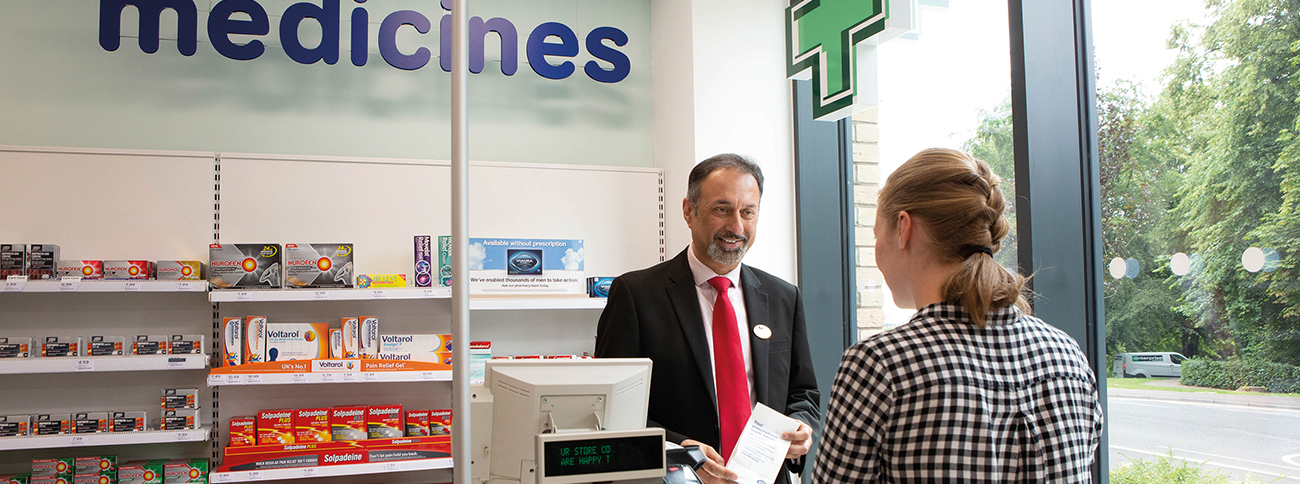 Skin conditions can affect people in different ways. For some, their skin condition may simply be a minor irritation, while for others it can have an impact on their confidence and self-esteem. Some people with visible skin conditions may find themselves becoming withdrawn or avoiding certain social situations or types of clothing as they are concerned about their appearance.2 Working in pharmacy, you are in an ideal position to provide advice to your customers about their skin conditions as well as signposting them to where they can get further advice and support.
Skin conditions can affect people in different ways. For some, their skin condition may simply be a minor irritation, while for others it can have an impact on their confidence and self-esteem. Some people with visible skin conditions may find themselves becoming withdrawn or avoiding certain social situations or types of clothing as they are concerned about their appearance.2 Working in pharmacy, you are in an ideal position to provide advice to your customers about their skin conditions as well as signposting them to where they can get further advice and support.
The Boots Online Doctor Service provides a convenient way for customers to get a wide range of prescription treatments and home test kits. Most of the services are available to anyone in the UK aged 18 years and over. Customers don’t have to see a healthcare professional in person; a member of the clinical team will check that the treatment is appropriate for them. The clinical team is made up of doctors, pharmacist independent prescribers and nurse prescribers.
How does it work?
There are three steps to the Online Doctor Service:
- Online consultation – customers should visit onlinedoctor.boots.com and complete their health history online. They can then select a delivery or pick up in store option and make payment; this takes five to 10 minutes.
- Clinical assessment – a member of the clinical team will review everything within 24 hours and prescribe treatment if appropriate. They will message or call the customer if they have any follow-up questions.
- Pick up in store or delivery – once they have received their treatment, customers will be provided with instructions and any other advice.

Managing skin conditions
Read below to find out more about different skin conditions and how The Boots Online Doctor Service may be able to help customers with each condition.
Acne3,4
Acne is a very common skin condition; it usually starts during puberty, and for most people, it tends to go away by the time they reach their early to mid-twenties.
Customers over 16 years can access a wide range of treatments for mild or moderate acne through the Boots Online Doctor Service.* Topical treatments, either on their own, or combined with an antibiotic, can be effective ways to manage acne. Customers with severe acne that might include scarring or painful lumps should be advised to see their GP in person.
Contact dermatitis5
Contact dermatitis is a type of eczema caused by contact with a particular substance that can cause the skin to become dry, irritated, itchy, blistered or cracked. It can be caused by an irritant (a substance that damages the outer layer of skin) or an allergen (a substance that causes the immune system to respond in a way that affects the skin). It is most commonly caused by irritants such as soaps and detergents, solvents or regular contact with water. Symptoms can affect any part of the body, but most commonly affect the face and hands.
Contact dermatitis usually clears up if the substance causing the symptoms is identified and avoided. Treatments that could be recommended to relieve the symptoms of mild contact dermatitis include emollients and over-the-counter creams. If a customer is having a flare-up of their symptoms, they may need a stronger treatment. The Boots Online Doctor Service can offer a topical corticosteroid to treat flare-ups.*
Eczema6
Eczema is the name for a group of skin conditions that can cause dry, irritated skin. Atopic eczema is the most common form of eczema, which causes the skin to become dry, itchy, inflamed, cracked and sore. Eczema can’t be cured, but the Boots Online Doctor Service can offer a variety of topical steroids to manage eczema flare-ups. These come in cream, ointment or lotion formulations, as well as a scalp-specific solution.*
Impetigo7,8
Impetigo is a bacterial infection of the skin. It is the most common skin infection seen in young children in the UK, but can occur in people of any age.
Impetigo usually affects exposed areas such as the hands and face and starts with red sores or blisters. Redness may be more difficult to see on darker skin. The sores or blisters quickly burst, leaving crusty, golden-brown patches. The crusty patches may be itchy and painful, can spread to other parts of the body and may get bigger. The Boots Online Doctor Service can prescribe Fucidin (fusidic acid) or Bactroban (mupirocin) to help clear up the infection.*
Psoriasis9
Psoriasis causes red, flaky patches of skin covered with silvery scales. The patches usually appear on the elbows, knees, scalp and lower back, but can appear anywhere on the body.
The Boots Online Doctor Service offers two main types of treatment for psoriasis: topical steroids and topical steroids combined with vitamin D compounds. These come in the form of gels, ointments, creams or foams, depending on where they’re meant to be used.*
Rosacea10
Rosacea is a long-term condition that mainly affects the face. It is more common in women and people with lighter skin, but symptoms can be worse in men.
Customers can access a wide range of treatments for mild or moderate rosacea through the Boots Online Doctor Service.* Customers with severe rosacea, or rosacea that affects their eyelids or eyes, should be advised to see their GP in person.
Did you know?
60% of British people currently suffer, or have suffered, with a skin disease at some point during their lifetime.11
When to refer
Customers that have a severe skin condition, e.g. acne cysts, or a condition that affects certain areas of the body may need to be referred to their GP. If you are not sure whether a customer needs to be referred, you can use the Online Doctor Questionnaire to check.
* Access to prescription-only medicines is subject to a consultation with a clinician to assess suitability. Charges may apply.
